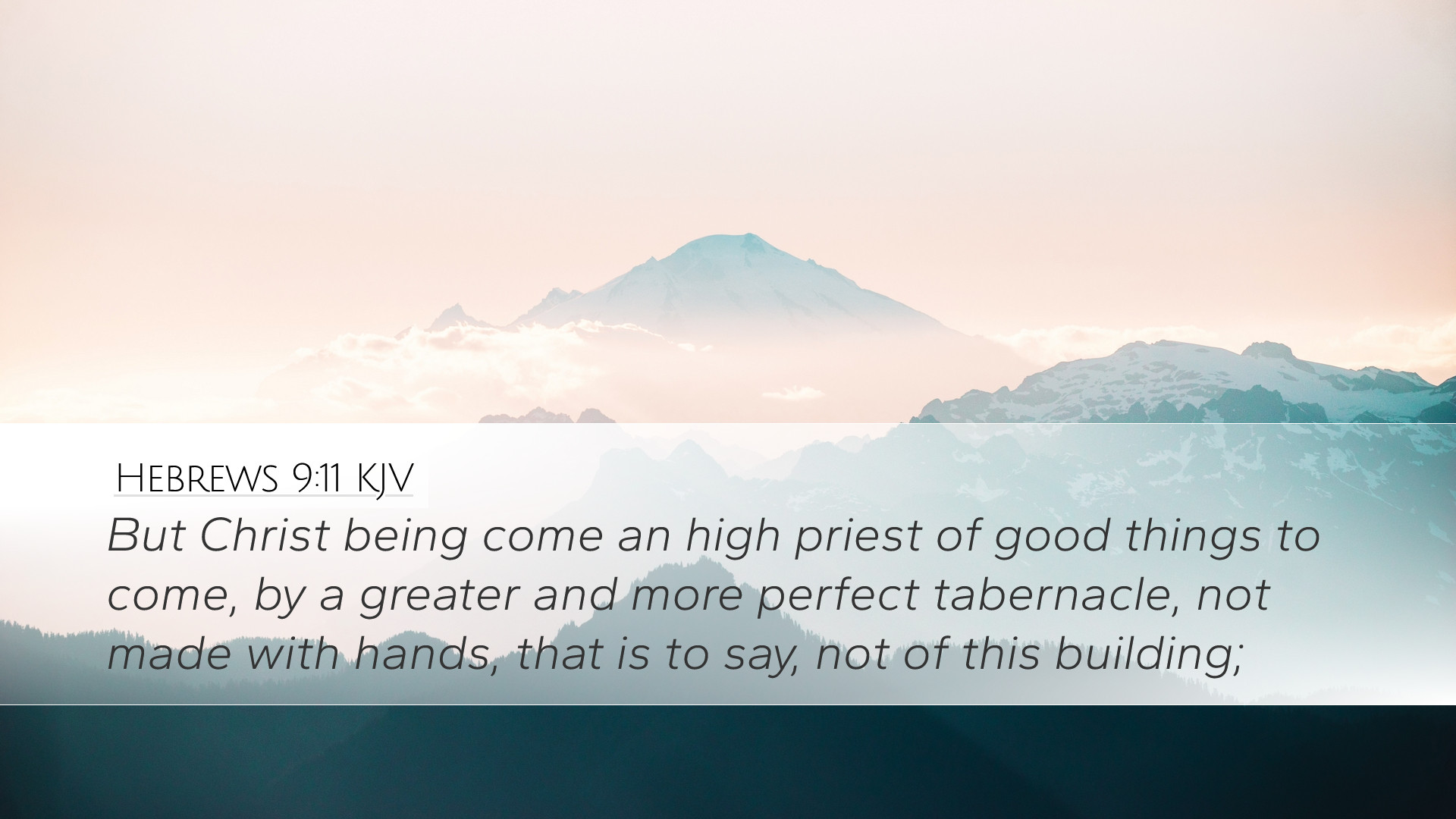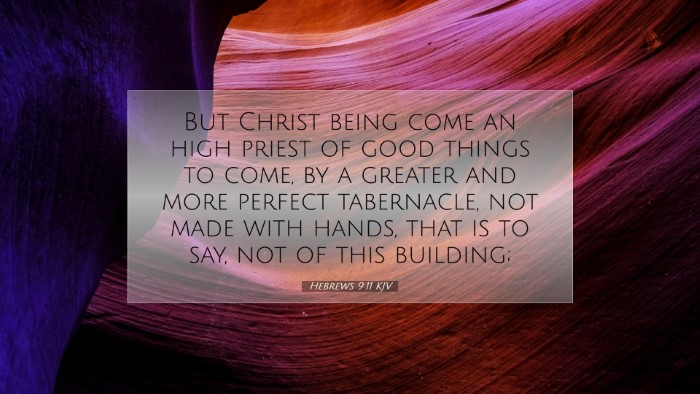Commentary on Hebrews 9:11
Hebrews 9:11 states: "But Christ being come an high priest of good things to come, by a greater and more perfect tabernacle, not made with hands, that is to say, not of this building."
Introduction
This verse in the Epistle to the Hebrews presents a profound theological assertion about the priesthood of Christ and the nature of the new covenant. By contrasting the earthly tabernacle with the heavenly sanctuary, the author underscores the supremacy and perfection of Christ's priestly ministry.
The High Priesthood of Christ
Matthew Henry elucidates that the term "high priest" resonates with the Jewish audience, as it intimates Christ's significant role in mediating between God and humanity. Unlike the Aaronic priests, whose service was confined to the earthly sanctuary, Christ serves as the high priest in the spiritual realm:
- Divine Appointment: Christ's priesthood is established by God, transcending the Levitical priesthood.
- Representation: He presents a once-for-all sacrifice, making continual offerings unnecessary.
The Concept of "Good Things to Come"
Albert Barnes emphasizes the phrase "good things to come." Here, "good things" imply the spiritual blessings ushered in by the new covenant. Barnes notes the following points:
- Redemption: A full atonement for sins made available through Christ.
- Access to God: Believers can now come boldly to the throne of grace.
- New Covenant Blessings: Transformation and regeneration of believers are key elements of the new covenant.
The Greater and More Perfect Tabernacle
The description of the "greater and more perfect tabernacle" draws on Adam Clarke's analysis, highlighting the transition from the old covenant, represented by the earthly tabernacle, to the new covenant realized in Christ:
- Heavenly Sanctuary: The tabernacle referred to is not made with hands, symbolizing the divine origins of the new order.
- Perfection: Unlike the earthly tabernacle, which was flawed and temporary, this heavenly tabernacle exemplifies permanence and divine perfection.
Theological Implications
The implications of this verse are multifaceted and serve to enrich our understanding of Christ's mediatory role:
- The Sufficiency of Christ: The transition from the earthly to the heavenly emphasizes that Christ is sufficient for all spiritual needs.
- Finality of Sacrifice: His sacrificial death is the ultimate provision for sin, eclipsing the temporary rites of the old covenant.
Conclusion
Hebrews 9:11 asserts the theological foundation of Christ's high priesthood and the new covenant in a way that is deeply meaningful and transformative for believers. By understanding the nuances of this verse, pastors, students, theologians, and Bible scholars can appreciate the richness of the text and its implications for faith and practice. The profound contrast between the earthly and heavenly priesthood serves to draw readers into a deeper relationship with God, highlighting that our access to Him is predicated on the effective, perfect sacrifice of Christ.


